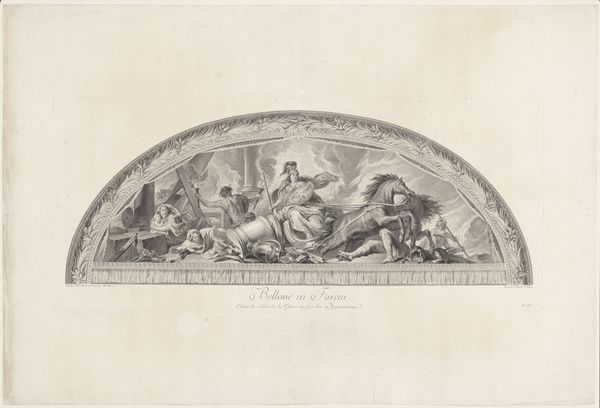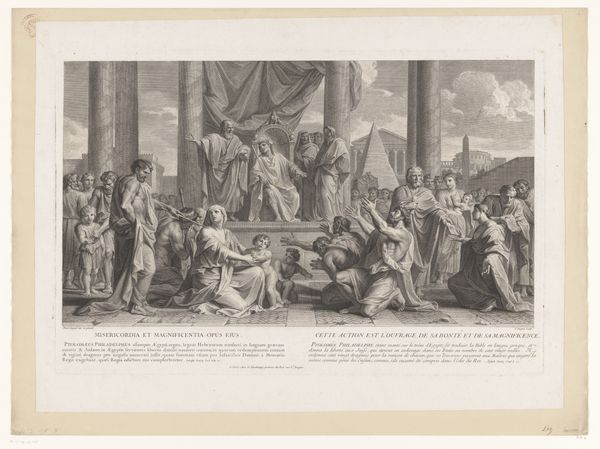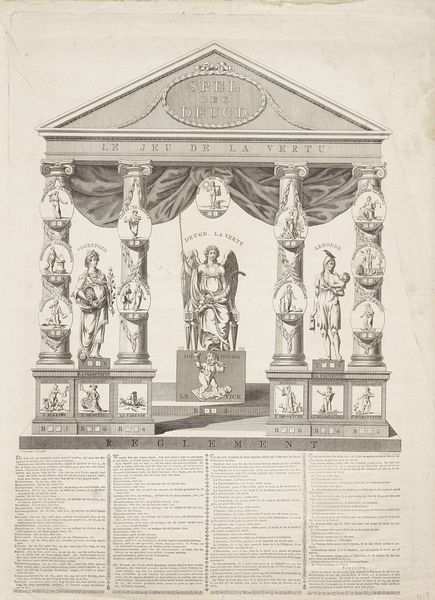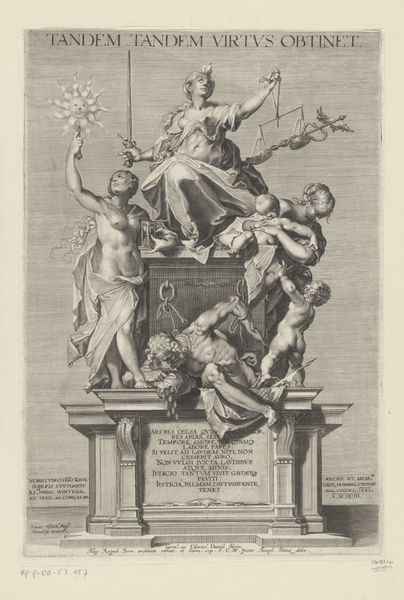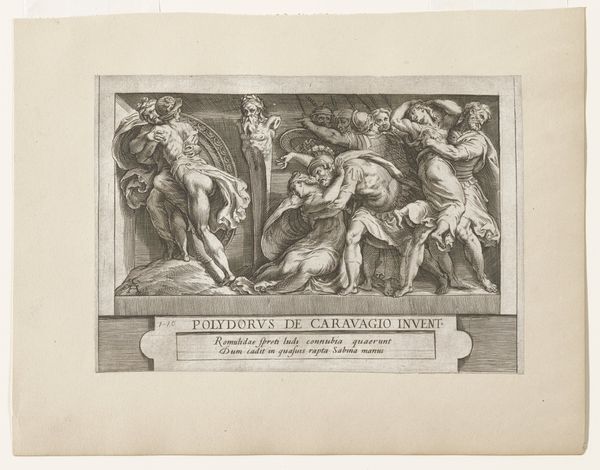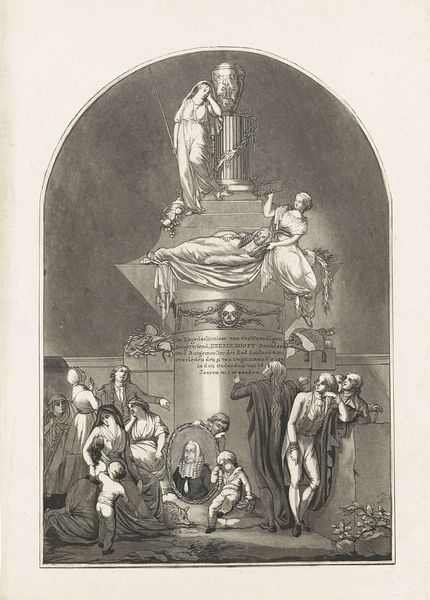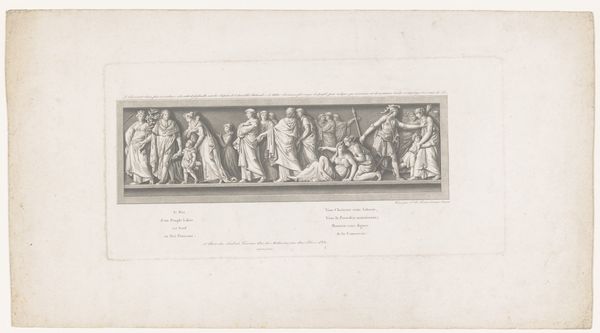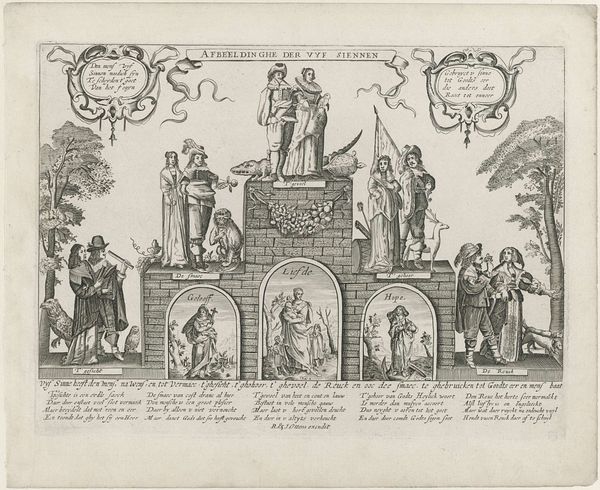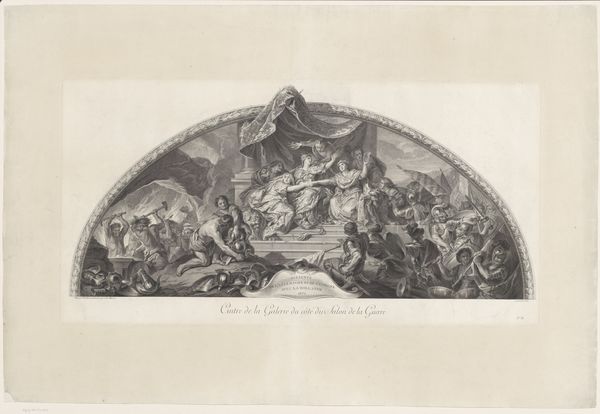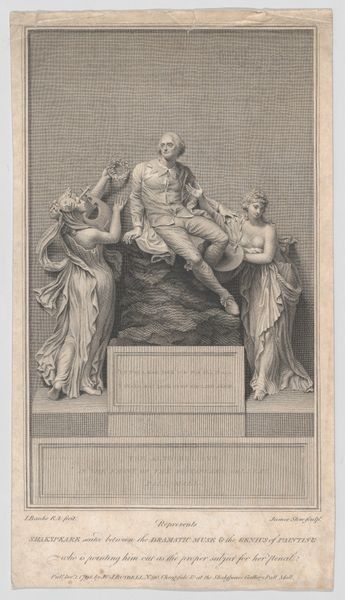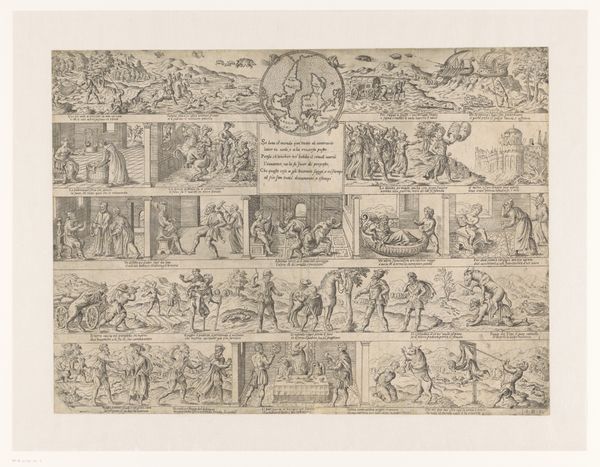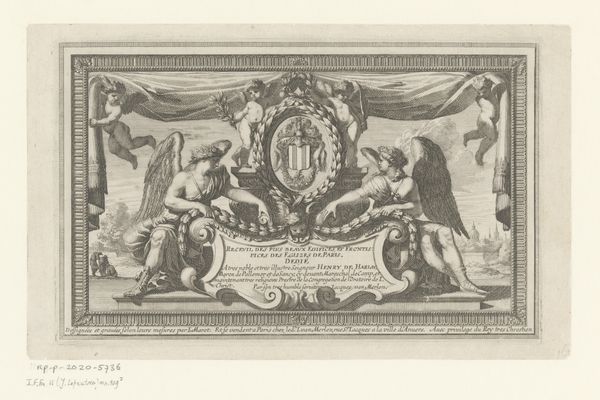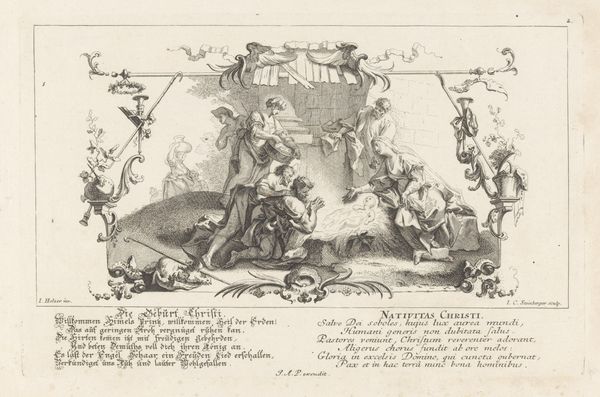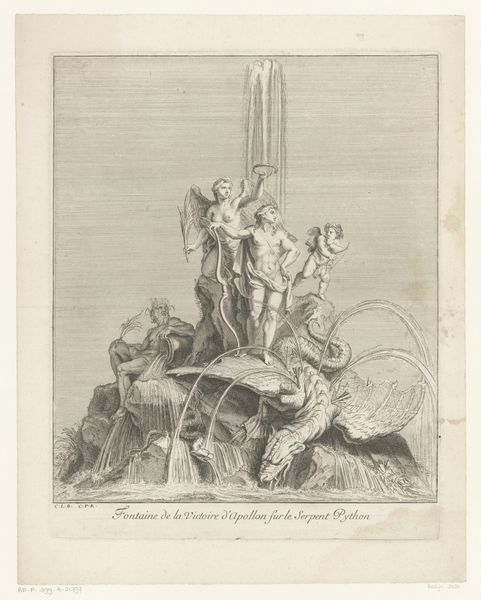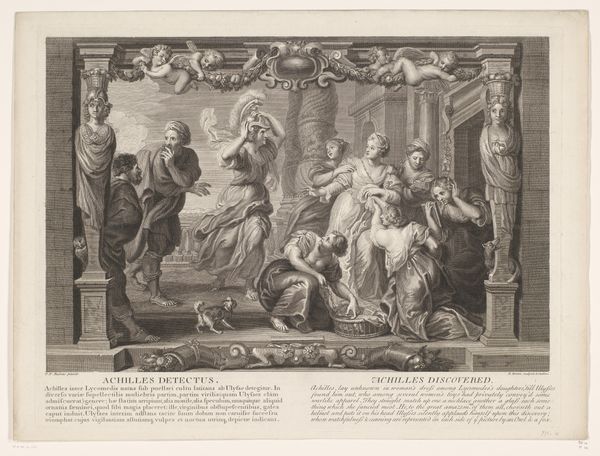
Allegorisch sculptuur op de Belgische Revolutie, 1830 1831 - 1835
0:00
0:00
print, relief, engraving
#
neoclacissism
#
allegory
# print
#
relief
#
old engraving style
#
history-painting
#
engraving
Dimensions: height 331 mm, width 518 mm
Copyright: Rijks Museum: Open Domain
Carel Christiaan Antony Last created this plaster relief sculpture in 1830, commemorating the Belgian Revolution. The choice of plaster, a humble material often used for preparatory models, is quite telling. It was easily cast and relatively inexpensive, allowing for widespread reproduction. The sculpture’s low relief and neoclassical style evokes classical friezes. The pale color and smooth texture of the plaster give the work a sense of austere grandeur. But the material's inherent fragility also hints at the instability of the political situation it depicts. Note the sharp undercuts. These were possible because plaster holds its form. This allowed the artist to create a high degree of three-dimensionality despite working in relief. The plaster embodies the revolutionary spirit of the time, challenging the established order with its democratized approach to artistic production. This piece invites us to look beyond the artwork's aesthetic qualities and consider the social and political forces at play.
Comments
No comments
Be the first to comment and join the conversation on the ultimate creative platform.
